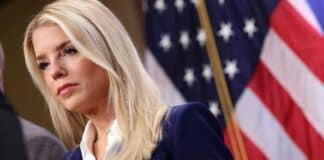President Trump launched a major foreign policy reshuffle Thursday, nominating Mike Waltz as the next U.S. Ambassador to the United Nations hours after the president removed him as National Security Advisor (NSA). Secretary of State Marco Rubio will serve as acting NSA in the interim. The announcement followed growing speculation that Waltz would be dismissed due to a security breach involving a group chat on the encrypted app Signal, and tensions between senior officials regarding policy direction.
“I am pleased to announce that I will be nominating Mike Waltz to be the next United States Ambassador to the United Nations,” President Trump wrote on Truth Social. “From his time in uniform on the battlefield, in Congress and, as my National Security Advisor, Mike Waltz has worked hard to put our Nation’s Interests first. I know he will do the same in his new role.”
Waltz’s nomination to the UN came despite calls for his removal from within the White House. The “Signal-gate” incident—where Waltz accidentally added Atlantic magazine editor Jeffrey Goldberg to a secure group chat discussing March 15 airstrikes in Yemen—sparked internal backlash. White House officials including Sergio Gor and Susie Wiles reportedly favored his dismissal. However, Trump refused to terminate Waltz publicly, avoiding high-profile firings during his first 100 days.
Responding to the president’s announcement, Waltz wrote on X, “I’m deeply honored to continue my service to President Trump and our great nation.”
Trump’s decision is seen by insiders as a strategic move to assert control over personnel decisions. “It wasn’t anyone’s choice but his because no one asked for this combo of things,” one source close to the administration told The Post.
Rubio’s appointment to a dual role is rare but reflects the president’s confidence in his leadership. Trump confirmed the interim arrangement, writing, “In the interim, Secretary of State Marco Rubio will serve as National Security Advisor, while continuing his strong leadership at the State Department.”
While the administration eyes Waltz’s confirmation to the UN post, the focus turns to who will take on the national security role permanently. Potential candidates include Michael Anton, favored by Vice President JD Vance, special envoy Steve Witkoff, and longtime Trump adviser Stephen Miller.
Trump’s decision to repurpose Waltz instead of firing him outright signals that loyalty and alignment with his vision still weigh heavily in personnel choices. However, Waltz’s removal likewise suggests a further ideological shift in the Trump administration’s foreign policy. During his time as NSA, Waltz, who has long favored a “peace through strength” approach to foreign affairs, was said to butt heads with more-isolationist figures within the administration, such as Vice President Vance. This reshuffling indicates that the views represented by individuals such as the Vice President and his allies may be establishing themselves as the dominate ideological strain within the administration.




